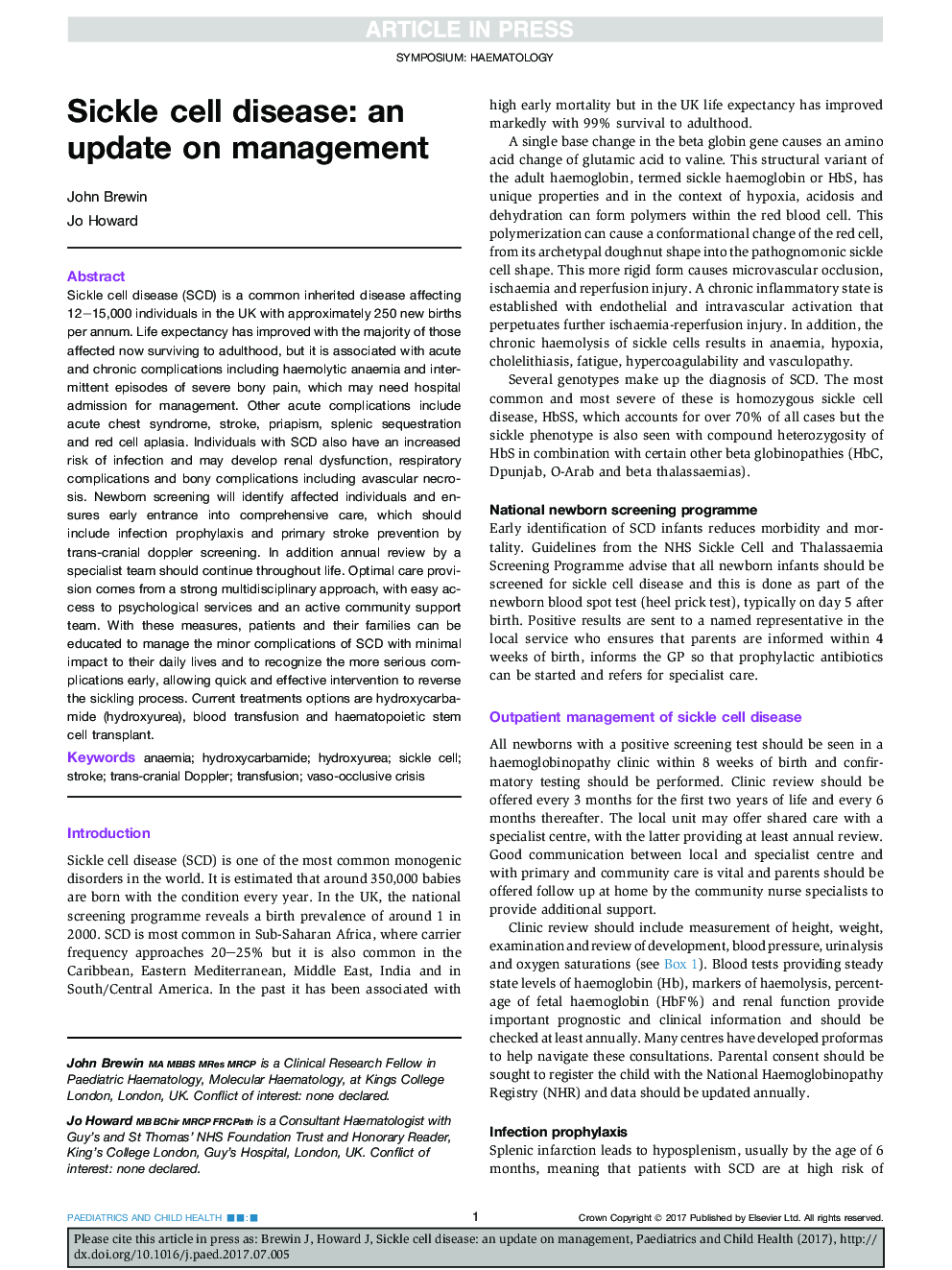| Article ID | Journal | Published Year | Pages | File Type |
|---|---|---|---|---|
| 8813165 | Paediatrics and Child Health | 2017 | 5 Pages |
Abstract
Sickle cell disease (SCD) is a common inherited disease affecting 12-15,000 individuals in the UK with approximately 250 new births per annum. Life expectancy has improved with the majority of those affected now surviving to adulthood, but it is associated with acute and chronic complications including haemolytic anaemia and intermittent episodes of severe bony pain, which may need hospital admission for management. Other acute complications include acute chest syndrome, stroke, priapism, splenic sequestration and red cell aplasia. Individuals with SCD also have an increased risk of infection and may develop renal dysfunction, respiratory complications and bony complications including avascular necrosis. Newborn screening will identify affected individuals and ensures early entrance into comprehensive care, which should include infection prophylaxis and primary stroke prevention by trans-cranial doppler screening. In addition annual review by a specialist team should continue throughout life. Optimal care provision comes from a strong multidisciplinary approach, with easy access to psychological services and an active community support team. With these measures, patients and their families can be educated to manage the minor complications of SCD with minimal impact to their daily lives and to recognize the more serious complications early, allowing quick and effective intervention to reverse the sickling process. Current treatments options are hydroxycarbamide (hydroxyurea), blood transfusion and haematopoietic stem cell transplant.
Keywords
Related Topics
Health Sciences
Medicine and Dentistry
Perinatology, Pediatrics and Child Health
Authors
John Brewin, Jo Howard,
